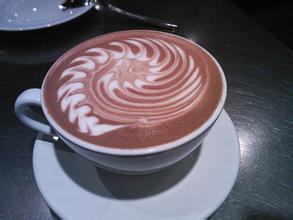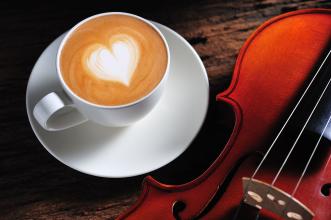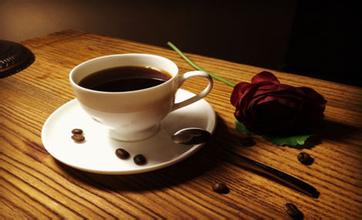Granular, full-bodied El Salvador coffee estate. Flavor, taste, characteristics. Boutique coffee.
Savanna climate. The plain area belongs to the tropical rain forest climate and the mountain area belongs to the subtropical forest climate. The average annual temperature is 25-28 ℃. The annual precipitation is more than 1800 mm in mountain areas and about 1000 mm in coastal areas. The rainy season is from May to October.
Don't underestimate El Salvador's coffee production. In its heyday, it was once the fourth largest coffee producer in the world, but decades of civil war almost dragged down the coffee industry. fortunately, the war has stopped in recent years, and the coffee industry has come back to life. The only benefit that the civil war brought to the Salvadoran country was that the farmers' fields were barren and failed to catch up with the most popular Katimo exposure train in the past two decades, thus preserving the ancient varieties of bourbon and Tibica, that is to say, El Salvador still uses the most traditional shade planting, which is of positive significance to the aroma of coffee. In 2005, the Salvadoran mixed-race Pacamara boasted in coe, which confused many international cup testers and did not know how to grade it. It was never expected that this hybrid bean not only broke the mellow boundaries of coffee, but also expanded the visibility of Salvadoran coffee.
El Salvador boutique coffee is concentrated in the volcanic rock producing areas of Santa Ana in the west and Charantanan fruit in the northwest. The top 10 cup tests in recent years almost all come from these two producing areas, with an elevation of about 9-1500 meters, mainly bourbon (68%). Followed by Pacas (29%), mixed-race Pakamara, Dulaai and Kaddura accounted for only 3% of El Salvador, located in the northwest of Central America and bordering the South Pacific Ocean. It is one of the birthplaces of ancient Mayan civilization. The nearby volcanoes, plateaus, lakes and bathing beaches along the Pacific coast are all very pleasant. But El Salvador is most famous for its unique, mild-flavored coffee.
El Salvador is one of the small countries in Central America with a very dense population. People here love coffee. The coffee in El Salvador tastes well balanced. Salvadoran coffee exports account for 40% of the country's exports. The best quality coffee is exported from January to March each year, and 35% of the extra hard beans are exported to Germany. In the early 1990s, due to the impact of war, the national economy of El Salvador was greatly damaged, even destroyed. As a result, the output of coffee decreased from 3.5 million bags in the early 1970s to 2.5 million bags in 1990-1991.
In El Salvador, the coffee beans rich in the Kuskabapa region are the best, slightly lighter, fragrant, pure and slightly sour. Like Guatemala and Costa Rica, coffee in El Salvador is graded according to altitude, and the higher the altitude, the better the coffee. The best brand is Pip, whose quality has been recognized by the American Organic Certification Society. Another rare coffee is Parkmara, a hybrid of Pacas coffee and Marago Rippi coffee, best produced in western El Salvador, adjacent to Santa Ana, which is close to the border with Guatemala. Parkmara coffee is full-grained, but not very fragrant

Important Notice :
前街咖啡 FrontStreet Coffee has moved to new addredd:
FrontStreet Coffee Address: 315,Donghua East Road,GuangZhou
Tel:020 38364473
- Prev

Introduction to the characteristic flavor and taste of Columbia boutique coffee manor with soft and smooth taste
Colombian Coffee Culture Colombia is located in northwestern South America, bordered by the Pacific and Atlantic Ocean. Panama in the northwest, Venezuela in the east, Brazil in the southeast, Peru in the south and Guadore in the southwest. Colombian Coffee Culture in 1808, a priest first introduced coffee to Colombia from the French Antilles via Venezuela. Today, the country
- Next

Introduction to the flavor and taste characteristics of the coffee producing area of Jinchu Valley, Kenya, which is rich and perfect in taste.
Kenyan Coffee-Flavor Kenyan Coffee is aromatic, full-bodied and fruity with a rich and perfect taste. Kenyan coffee has a wonderful fruit flavor, tastes like BlackBerry and grapefruit, and is a favorite of many coffee gluttons. This coffee has an excellent medium purity, crisp and refreshing taste. The flavor is fresh and most suitable for summer ice.
Related
- Detailed explanation of Jadeite planting Land in Panamanian Jadeite Manor introduction to the grading system of Jadeite competitive bidding, Red bid, Green bid and Rose Summer
- Story of Coffee planting in Brenka region of Costa Rica Stonehenge Manor anaerobic heavy honey treatment of flavor mouth
- What's on the barrel of Blue Mountain Coffee beans?
- Can American coffee also pull flowers? How to use hot American style to pull out a good-looking pattern?
- Can you make a cold extract with coffee beans? What is the right proportion for cold-extracted coffee formula?
- Indonesian PWN Gold Mandrine Coffee Origin Features Flavor How to Chong? Mandolin coffee is American.
- A brief introduction to the flavor characteristics of Brazilian yellow bourbon coffee beans
- What is the effect of different water quality on the flavor of cold-extracted coffee? What kind of water is best for brewing coffee?
- Why do you think of Rose Summer whenever you mention Panamanian coffee?
- Introduction to the characteristics of authentic blue mountain coffee bean producing areas? What is the CIB Coffee Authority in Jamaica?

